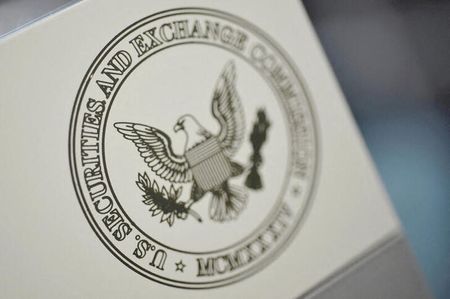WASHINGTON (Reuters) -The head of the U.S. securities regulator said Monday the agency was “disappointed” with a judge’s recent ruling that Ripple Labs Inc did not violate federal securities laws in a major blow to its efforts to rein in the cryptocurrency sector.
U.S. Securities and Exchange Commission Chair Gary Gensler said his agency was still assessing the court’s decision but was pleased with a portion of the ruling in which the judge held that Ripple should not have sold its XRP tokens directly to sophisticated investors.
Gensler also said agency staff were still working on a much-anticipated climate disclosures rule, and were now developing recommendations on regulating artificial intelligence, which he said posed risks to investors and financial stability.
In a landmark victory for the cryptocurrency industry, a U.S. judge ruled July 13 that Ripple did not break federal securities laws by selling XRP on public exchanges, in a move that sent the value of the token soaring.
While the decision is specific to this case, it likely will provide ammunition for other crypto firms battling the SEC over whether their products fall under the regulator’s jurisdiction.
The SEC has sued a number of crypto firms in recent months, arguing that most crypto tokens are securities that should be registered with the agency.
Gensler also said the SEC would need “new thinking” to confront challenges to financial stability presented by the use of technologies such as predictive analytics and machine learning, according to Gensler.
Gensler’s remarks are part of a broader U.S. government effort to promote what officials call “responsible” innovation while also managing what they say are threats the emerging technology poses to public safety.
If a trading platform’s AI system considers the interest of both the platform and its customers, “this can lead to conflicts of interest,” Gensler said, according to a copy of prepared remarks, adding that he had tasked SEC staff with recommending new regulatory proposals to address this.
AI could also amplify the world financial system’s interconnectedness, something for which current risk management models may not be prepared, Gensler said.
“Many of the challenges to financial stability that AI may pose in the future … will require new thinking on system-wide or macro-prudential policy interventions.”
Gensler’s remarks echoed statements he has made in recent months on managing risks created by the use of AI in finance.
According to the SEC’s most recent agenda for developing new regulations, officials are considering possible rule proposals, which could be unveiled later this year, to govern the potential for conflicts of interest in the use of AI and machine learning by investment advisers and broker-dealers.
The agenda also updated the possible timeline for the finalization of a rule governing corporate disclosures to investors of greenhouse gas emissions and climate risks, saying the rule could be finalized in October. However, Gensler said this was not hard and fast.
“We’ve got some work still to do,” Gensler said. “I don’t have a time. It’s really when the staff is ready and when the Commission is ready.”
(Reporting by Douglas Gillison, Andrea Shallal and Hannah Lang in WashingtonEditing by Matthew Lewis, David Evans and Nick Zieminski)





